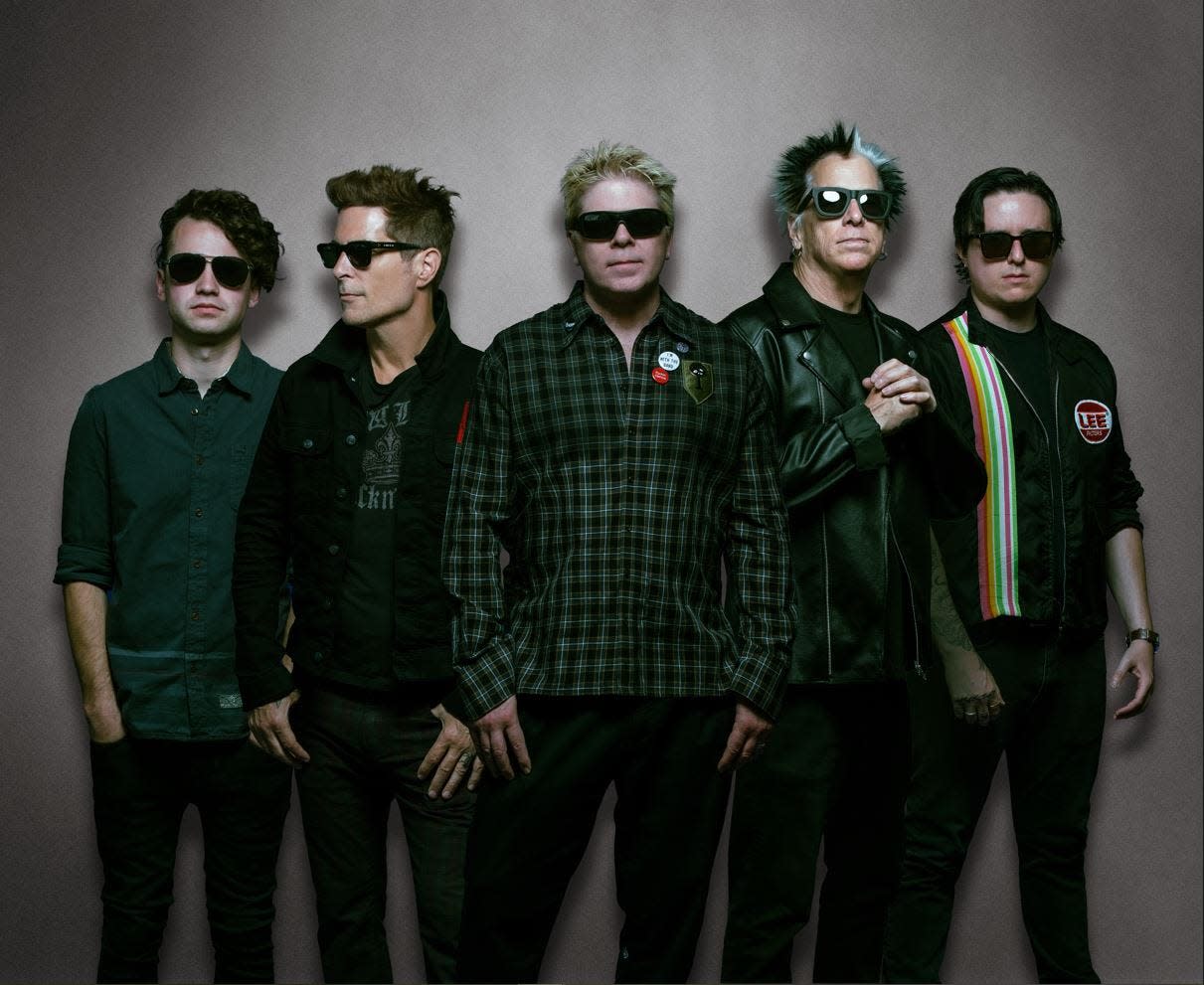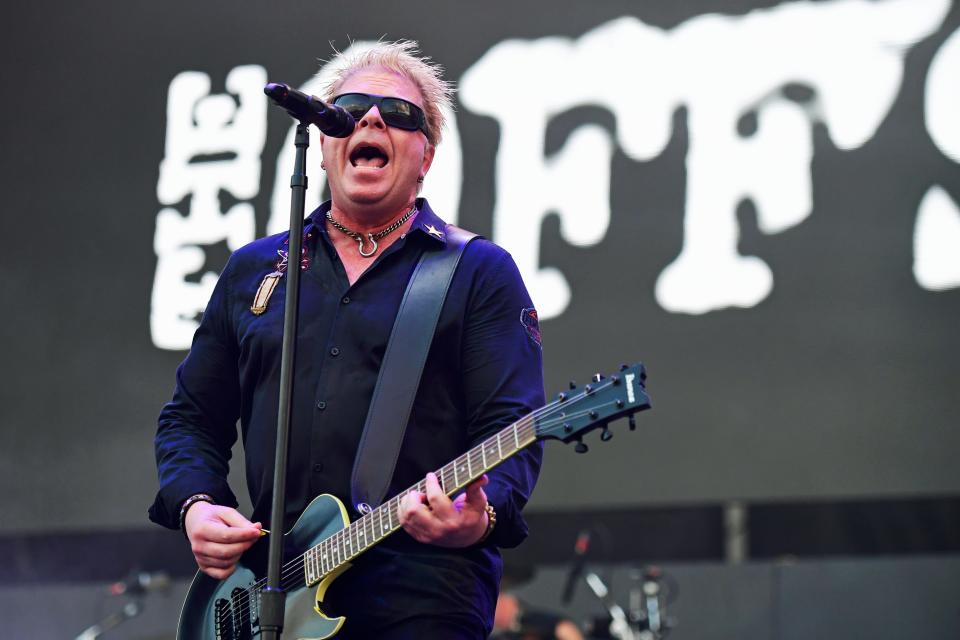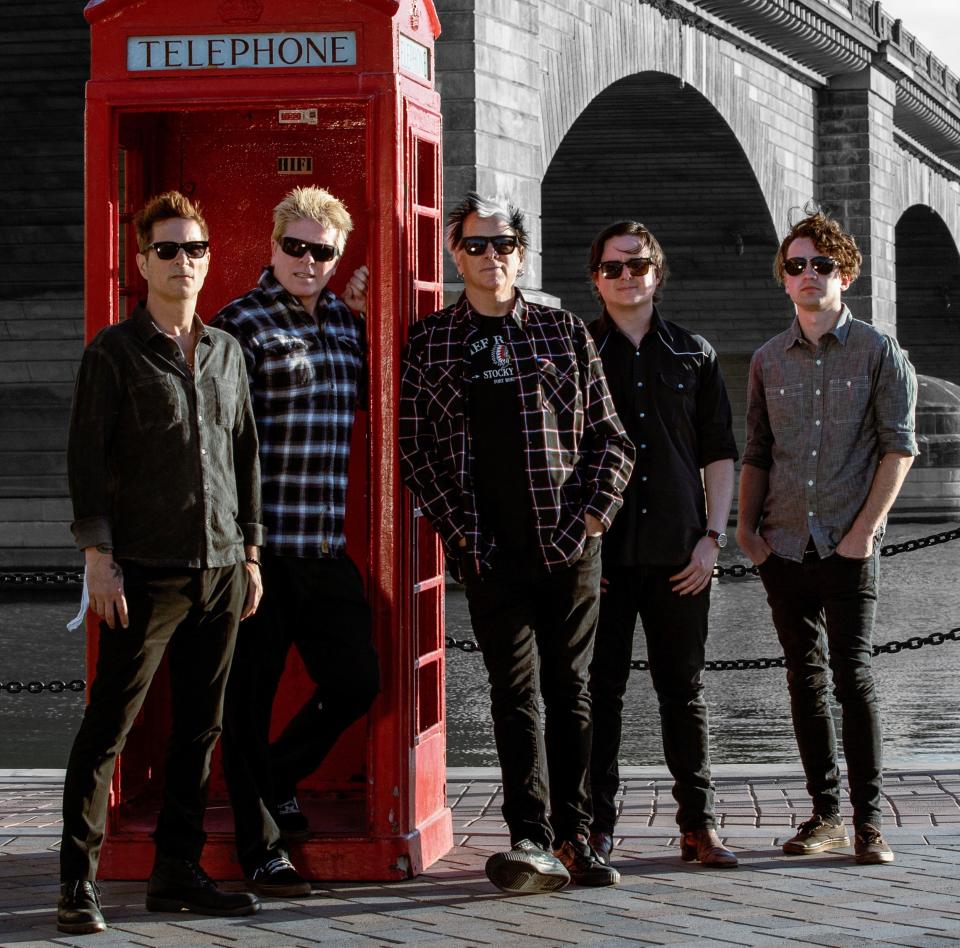Offspring frontman Dexter Holland isn't too fly for a Ph.D. ... in molecular biology?

- Oops!Something went wrong.Please try again later.
The Offspring came to prominence early in the '90s with its first hit, “Come Out and Play,” ushering in the post-grunge pop-punk sound that was soon after made mainstream by Green Day and Blink-182, among others. Nearly 40 years after the band's formation, songwriter/singer/guitarist Dexter Holland remains a very busy guy.
Aside from releasing the band’s 10th album and selling his former label, Nitro Records, the frontman has started a hot sauce company, a charitable foundation and just earned his doctorate in molecular biology. I spoke with Holland about his recent exploits ahead of The Offspring’s upcoming show at Riverbend on Wednesday, Aug. 30.Q: Do you have any memories of coming through Cincinnati that I can share?
A: We used to play Bogart’s early on. We did our first shows at places like that. That was during "Come Out and Play," and it just went off. I think we also did a festival downtown, and Blondie was playing, and we got to go on their bus. You know, random memories. And the chili, of course.
Q: You grew up in Orange County, and met your first bandmate while doing cross-country in high school. Was there something about Garden Grove that influenced you to make punk music?

A: Yeah, that's something that we hear all the time. Garden Grove is very normal, suburban, middle-class. What would make you want to make crazy, rebellious punk music? And I don't know that I really have an answer for you, but it was very common – The Vandals, The Adolescents, etc. So there was obviously something in the water.
I think it was just boredom. Everything seemed the same and conforming, and you felt this stifling pressure that you're just supposed to be a guy at a desk with a tie for the rest of your life. We didn't want to do that. So something made us want to start a band.
Q: You also graduated valedictorian. Don't take this as a jab, but how did you level being a nerd with the anti-establishment themes of punk rock?
A: In the '80s, being into punk rock was an outsider thing. It was just too gnarly at the time. I know things have changed over the years, and I know it’s very common to go, “Oh, I was a bit of an outsider when I was a kid.” But we really were.
My cross-country friends and I didn't look like the guys that were into punk. Those guys had huge liberty spikes and leather jackets and metal studs and stuff. And we were just, like you said, nerds with flat-top crew cuts running cross-country – outsiders to the outsiders. I just identified with that rebellious feeling.
Q: A lot of your lyrics have tongue-in-cheek elements. How do you balance that humor with your otherwise socially conscious songs?
A: There's two sides to the band, right? Obviously, we have some fun songs like "Pretty Fly for a White Guy" and "Self Esteem." And there's also a very serious side: "Gone Away,” for example. It's a heavy song. For a long time, frankly, I struggled with it. I thought, this maybe doesn't feel like it's right for a brand identity. Either you're a fun band or you're a serious band. It can't be both.
The more I wrote songs that I felt like writing, the more I realized I'm not always a serious person, I'm not always a humorous person. Why does my band have to be any different? Why can't it just express what I feel at the moment? I think it's good to have both.
Q: Last year, you released a new album, and from what I read, it seemed like a pretty arduous, drawn-out process. How did you keep the energy up during that span of years?
A: It ended up being almost nine years between records, and it was not supposed to be that long, but it didn't feel like it was. Sometimes you forget that you do a little recording and then you go out on tour, and then the next thing you know, it's three months later, or it's the end of the year, and you haven't gotten anything done in the studio because you've been busy touring.
I think we did 75 shows last year. We're typically gone about four months out of every year. So it's hard to fit in all that other stuff. You get home and you need to open your mail and go to the dentist and all that stuff, and you're trying to figure out how to fit in time to record, so that makes it tough.

I also decided to go back to school in between those two records. I had an opportunity at USC, where I got my undergrad and my master's, and I knew that the opportunity wouldn't be there forever, and I thought I should act on it while I still could. So that really took up a lot of time as well.
Q: What got you into molecular biology? From what I've read, your Ph.D. thesis was basically about how HIV has evolved to avoid its host's immune response.
A: When I went to college, I was a pre-med, and I was interested in medicine. I didn't know for sure if I loved it enough to make a career out of it, but I knew that I liked it and I loved the idea of helping people. I also knew that I really had the bug for the band. So it was kind of like the angel or the devil on my shoulder. Which way should I go?
But when I did all the courses as an undergrad pre-med, I liked molecular biology the best, and I really liked viruses. I think it's fascinating the way they affect your body. They're little evil things that you're fighting all the time. As I went further along, it became clear I wasn't going to go into medical school. My path started to go in the research direction.
HIV is really interesting because it's like the most complicated of viruses. And it's a very pesky virus. It's very hard to get rid of. As you know, you can't totally cure it. I thought it's a great way to make some kind of contribution.
Q: You started Nitro Records, which was impressively successful. What made you want to start a label and how did you find all of those really good bands?
A: We got signed to Brett Gurewitz's label, Epitaph. I got to see how that worked – the nuts and bolts. But he wasn't the first guy. Jello Biafra had a label, Alternative Tentacles. Ian MacKaye had a label. So the idea of somebody in a punk band doing a label just kind of went along with the DIY thing.
We'd become friends with bands that lived around us like Guttermouth and The Vandals, who were great bands. And Epic didn't want to sign them – they couldn't get what they thought was a good record deal. I thought these guys would do great if someone just puts them out.
The most rewarding thing was to take these bands that people didn't really know outside of California and actually develop them over three or four albums. AFI was like five records in before we really got to see them grow artistically and become a pretty well-known band.
Q: You're also active in philanthropy, including starting your own foundation, and you've created a successful hot sauce company. You're a pilot, a surfer, a father. How do you find all the time to do everything that you want to do?
A: It's not easy. You've got to schedule stuff because it's always like spinning plates. I'm doing press today, and then tonight we have a podcast. And tomorrow morning I'm on the phone with a science researcher in Boston because we're trying to finish a paper. You just have to know how to get into a schedule.
The Offspring, Simple Plan & Sum 41: Let The Bad Times Roll Tour
When: 7 p.m., Wednesday, Aug. 30.
Where: Riverbend Music Center, 6295 Kellogg Ave., Anderson Township.
Tickets: $49.50-$135.
This article originally appeared on Cincinnati Enquirer: The Offspring's front punk Dexter Holland now has a Ph.D.

